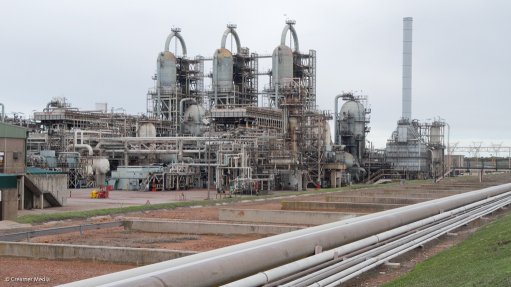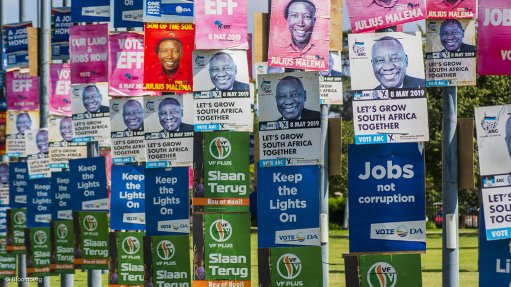SA munitions firm a key asset for major German defence group
South African defence company Rhein-metall Denel Munition (RDM) is set to become the German Rheinmetall group’s second global hub for munitions manufacture and is already a major research and development (R&D) centre for the global company. RDM is 51%-owned by Rheinmetall and 49% by South Africa’s State-owned Denel defence group. RDM’s activities involve munitions from 40 mm to 155 mm in calibre for guns, gun-howitzers and mortars, and related products.
“Our future plan is to have South Africa as the manufacturing hub for munitions for especially South America, Africa, the Far East and Australia – basically, the southern hemisphere,” explains RDM CEO Norbert Schulze. “But we will still deliver into North America and other Nato (North Atlantic Treaty Organisation) countries.”
“Also important is that we are the mortar house, responsible for the development of all mortar munitions – 60 mm, 81 mm and 120 mm – for the Rheinmetall group worldwide,” he adds. “We do the R&D for these munitions: everything from design to the final qualification of the munitions, which is done here in South Africa. We qualify to Nato standards, which the company previously could not do. This helps us a lot to open new markets; many key markets won’t accept munitions unless they are Nato qualified. At this time, mortar munitions are going through a renaissance. We have orders for 180 000 mortar bombs just for next year. And it will go on. It’s a really constant business.”
RDM also undertakes R&D in artillery ammunition, energetics (propulsion systems), explosives and pyrotechnics. In fact, the South Africa company is a member of the Stanag explosives group. (Stanag stands for Standardisation Agreement, and Stanags are Nato instruments which provide common standards for a very wide range of defence equipment, systems, procedures and services, ranging from armour specifications to standards for emergency war surgery; many non-Nato countries also adhere to and employ these Stanags.) “This is very important for South Africa,” he affirms. “We are involved in the setting of the standards and testing procedures for new explosives.”
Rheinmetall bought into the company, creating RDM, five years ago. Since then, some R850-million has been invested in the South African operation. The money was provided by the shareholders and part of it came from RDM’s profits. “Our facilities are now again world class – the same standards as in all other Rheinmetall plants. This has given us our success,” he reports. At the time of Rheinmetall’s takeover, the company had accumulated debt of R400-million. RDM went from loss to profit in just six months, helped by the German group’s global network – it is active in 85 countries. “In the past five years, we’ve made R400-million in profits. Between 70% and 80% of our business is exports. That’s what makes the business sustainable. The SANDF (South African National Defence Force) is just not big enough to support the industry, to support R&D.” RDM’s R&D is internally financed, without any funding from the SANDF. “But the result is that they get the best-quality munitions – locally produced. We brief the SANDF on the work that we are doing. It’s very much to the benefit of the country.”
When RDM was set up, it had a turnover (not profit) of R800-million. The company is now targeting a turnover of R2-billion in 2015, including profits. The company has four production plants – at Boksburg, in Gauteng province, Boskop, in the North West province (these two facilities form RDM North), Somerset West and Wellington (both in the Western Cape and forming RDM South). “We are happy with our investment,” he affirms.
“What we want to stress is that we are a South African company, although part of a German group,” emphasises Schulze. “Apart from the CEO – me, I’m German – all our other employees – 1 800 – are South African. We train a lot of people. We have bursaries, especially at the University of Stellenbosch. We also run young engineer training programmes for newly graduated engineers. These are not our employees, although some are recruited by us once they have proven themselves. We do this at all our sites. And we are a Level 3 black economic- empowerment compliant company.”
Comments
Press Office
Announcements
What's On
Subscribe to improve your user experience...
Option 1 (equivalent of R125 a month):
Receive a weekly copy of Creamer Media's Engineering News & Mining Weekly magazine
(print copy for those in South Africa and e-magazine for those outside of South Africa)
Receive daily email newsletters
Access to full search results
Access archive of magazine back copies
Access to Projects in Progress
Access to ONE Research Report of your choice in PDF format
Option 2 (equivalent of R375 a month):
All benefits from Option 1
PLUS
Access to Creamer Media's Research Channel Africa for ALL Research Reports, in PDF format, on various industrial and mining sectors
including Electricity; Water; Energy Transition; Hydrogen; Roads, Rail and Ports; Coal; Gold; Platinum; Battery Metals; etc.
Already a subscriber?
Forgotten your password?
Receive weekly copy of Creamer Media's Engineering News & Mining Weekly magazine (print copy for those in South Africa and e-magazine for those outside of South Africa)
➕
Recieve daily email newsletters
➕
Access to full search results
➕
Access archive of magazine back copies
➕
Access to Projects in Progress
➕
Access to ONE Research Report of your choice in PDF format
RESEARCH CHANNEL AFRICA
R4500 (equivalent of R375 a month)
SUBSCRIBEAll benefits from Option 1
➕
Access to Creamer Media's Research Channel Africa for ALL Research Reports on various industrial and mining sectors, in PDF format, including on:
Electricity
➕
Water
➕
Energy Transition
➕
Hydrogen
➕
Roads, Rail and Ports
➕
Coal
➕
Gold
➕
Platinum
➕
Battery Metals
➕
etc.
Receive all benefits from Option 1 or Option 2 delivered to numerous people at your company
➕
Multiple User names and Passwords for simultaneous log-ins
➕
Intranet integration access to all in your organisation


















